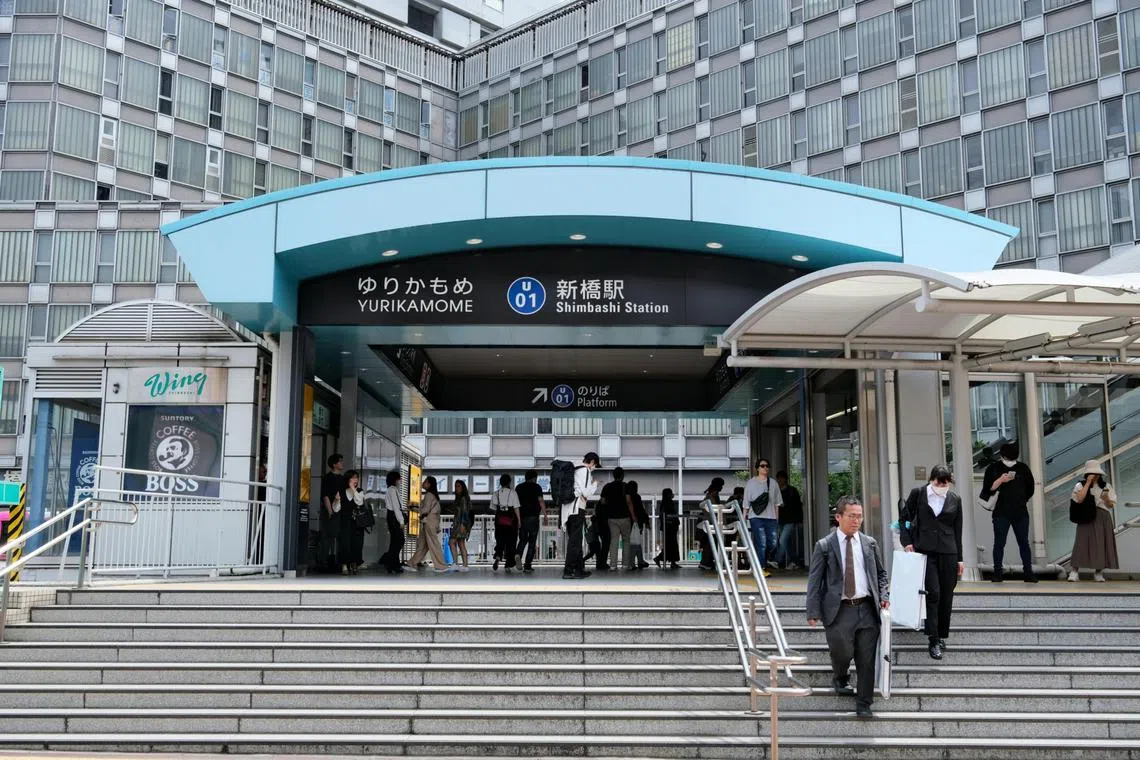Japan’s base salaries rise by record in good sign for PM Ishiba
Sign up now: Get ST's newsletters delivered to your inbox

Base pay for full-time workers in Japan rose by a record 2.9 per cent in August from a year ago, accelerating from a 2.6 per cent pace in July.
PHOTO: PEXELS
Follow topic:
TOKYO – Base salaries for regular workers in Japan grew at a record pace, providing a tailwind for Prime Minister Shigeru Ishiba as he prepares to lead his party in a general election later this month.
Base pay for full-time workers rose by a record 2.9 per cent in August from a year ago, accelerating from a 2.6 per cent pace in July, the Labour Ministry reported on Oct 8. Growth in nominal cash earnings for all workers slowed to 3 per cent, a tad stronger than the consensus estimate.
In a less promising development, real wages declined after advancing for the past two months, while a separate report showed that household spending fell.
The wage data came as the newly installed leader prepares to seek a mandate in a general election to be held on Oct 27.
Mr Ishiba has vowed to apply pressure on businesses to keep wages rising, building on the biggest increases in three decades secured by workers in 2024.
The nation’s leading business lobby has urged the government to create an economic environment conducive to hikes.
Wage trends are among the most closely watched indicators as the government and Bank of Japan (BOJ) seek to achieve a positive cycle of rising salaries fuelling spending, spurring demand-led inflation. That mechanism would allow the authorities to declare an end to deflation once and for all.
In a separate report from the Internal Affairs Ministry, Japanese households reduced their spending by 1.9 per cent in August from the previous year, an indication that households continue to tighten their budgets after more than two years of price gains at or above the BOJ’s 2 per cent target.
Households pared spending on housing, transportation and education, while outlays for food, clothing and furniture increased.
The wage figures will keep the BOJ on track for another rate hike at some point.
The authorities are widely expected to hold monetary settings steady when they next set policy on Oct 31, with many economists looking for another move by January.
In his inaugural speech last week, Mr Ishiba stated that his top economic priority is to combat deflation and put the nation on a stable growth path. He also emphasised the importance of wage growth outpacing inflation to foster a wage-led growth economy.
The ruling Liberal Democratic Party aims to win support from voters in the election with promises to help them cope with rising costs for basic needs after recent scandals eroded its support.
Mr Ishiba began his term with relatively low public support. In a poll conducted by Sankei and FNN over the weekend, his Cabinet approval rate stood at 53.5 per cent. His predecessor Fumio Kishida had a 63.2 per cent approval rate at his inauguration.
Surveys show respondents consider measures to address inflation and promote wage hikes among their top priorities for the government. BLOOMBERG

